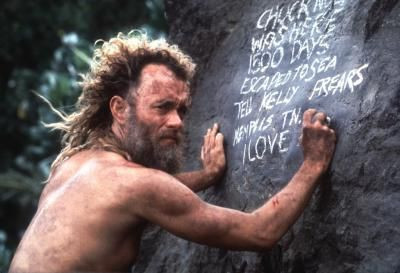Castaway, Jose Salvador Alvarenga, Survives 16 Months At Sea Eating Birds, Drinking Turtle Blood

A man initially claiming to be Jose Ivan, originally from El Salvador, said he spent 16 months lost in the Pacific Ocean before landing on the remote Marshall Islands this past Thursday. The castaway, who was only able to communicate through Spanish, attributed his survival to eating the sea’s wildlife, including birds, fish, and even turtle blood.
According to initial reports, Ivan — later identified as Jose Salvador Alvarenga — and a friend departed from Mexico in December 2012 on an intended shark fishing expedition. After a problem with the boat’s engine, Alvarenga and his fellow fisherman’s attempts to flag down passing ships failed while they drifted farther and farther away from civilization. Unfortunately, Alvarenga's companion passed away a few months ago while at sea.
Alvarenga continued to float aimlessly in the rough and dangerous waters of the Pacific after watching his companion’s body sink. In order to survive, he admitted to drinking rain water, his own urine, and even turtle blood. He also turned to catching and eating fish and birds with his bare hands. Bearded, sun-burned, and slightly emaciated, Alvarenga arrived on Ebon Atoll over a year after setting sail from his home in Mexico.
“I thank God and I thank the birds I caught to eat,” Alvarenga told the Daily Mail. "I caught fish and at times I drank my own urine to have liquid. Every day was the same, just the sea, the sea. I saw nothing more. The sea and my boat. I had no idea of time, but I know that it was Dec. 21, 2012, when we left. The days at sea and the nights ... they were all one after a while. I lived on fish that were easy to catch and once I caught a small shark. I know sharks. I used to catch them all the time.”
Doctors in Majuro, where Alvarenga was taken following his unexpected arrival in the Marshall Islands, said he still has lengthy recovery before his physical condition can be considered healthy. In addition to extremely low weight and blood pressure, doctors fear Alvarenga may also be suffering from edema, a condition that causes the body to bloat due to sunlight exposure.
"His condition isn’t good, but he’s getting better. He's staying at the local council house and a family is feeding him," Norwegian anthropologist Ola Fjeldstad told The Guardian. "We've been giving him a lot of water, and he's gaining strength."
Published by Medicaldaily.com



























